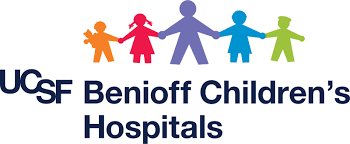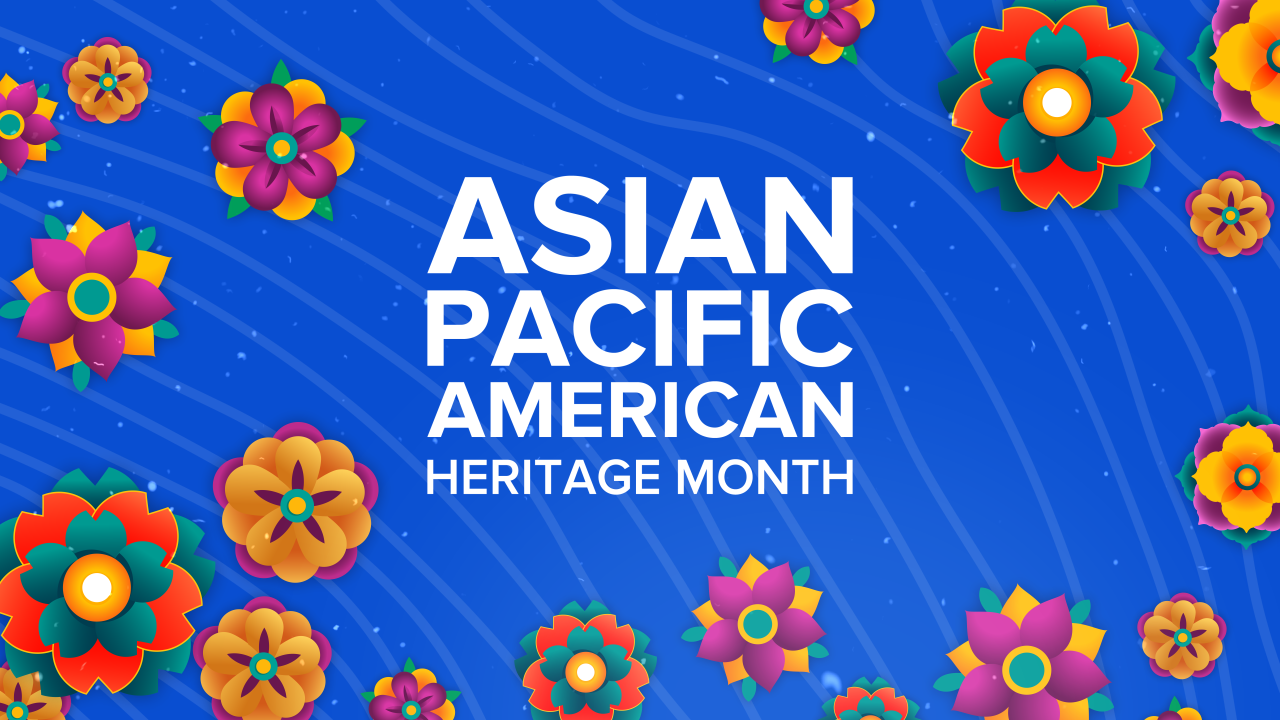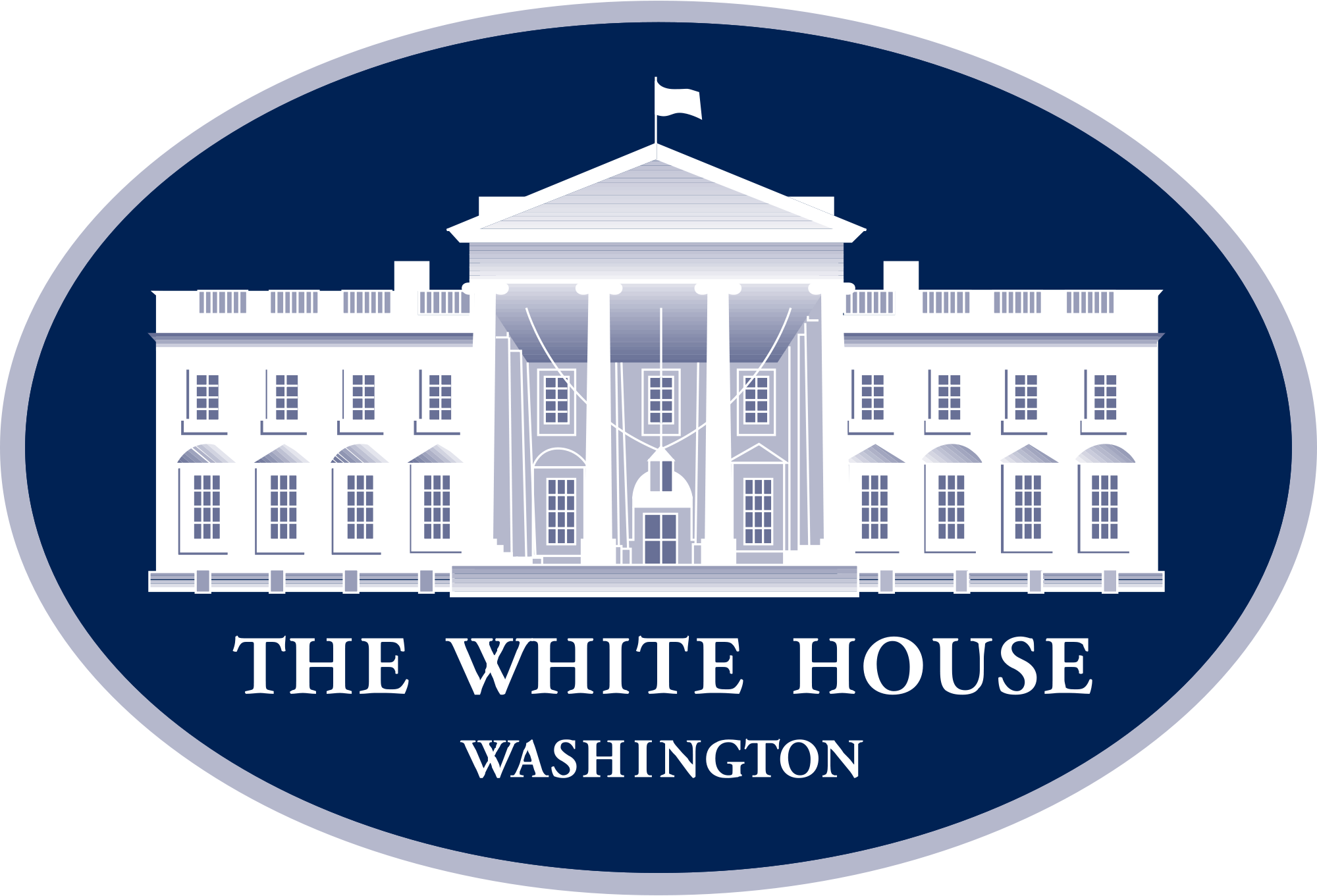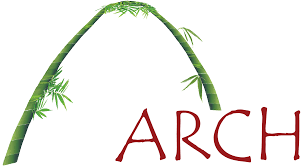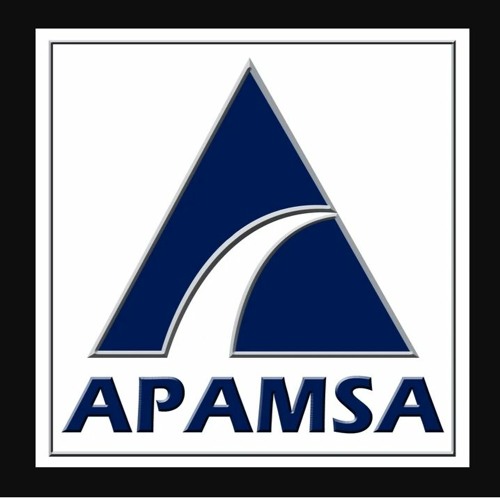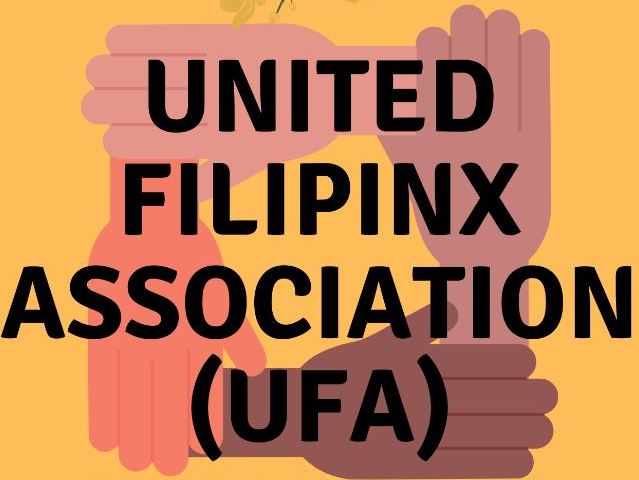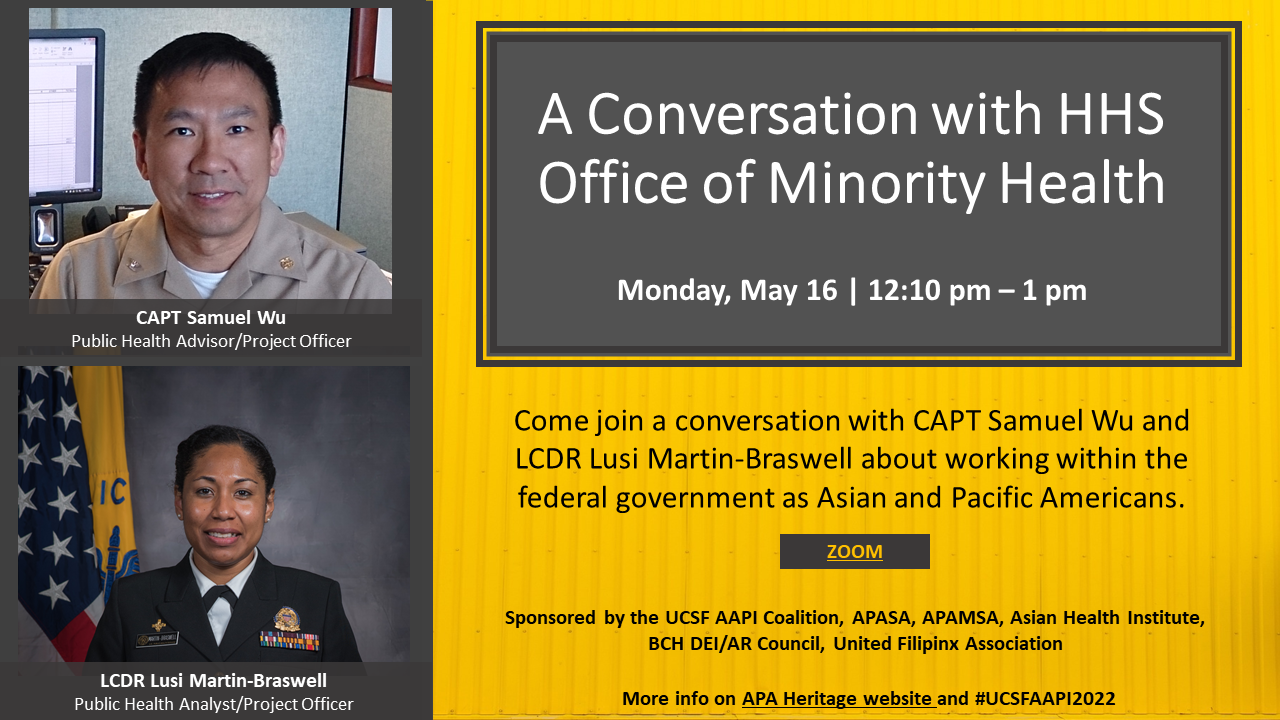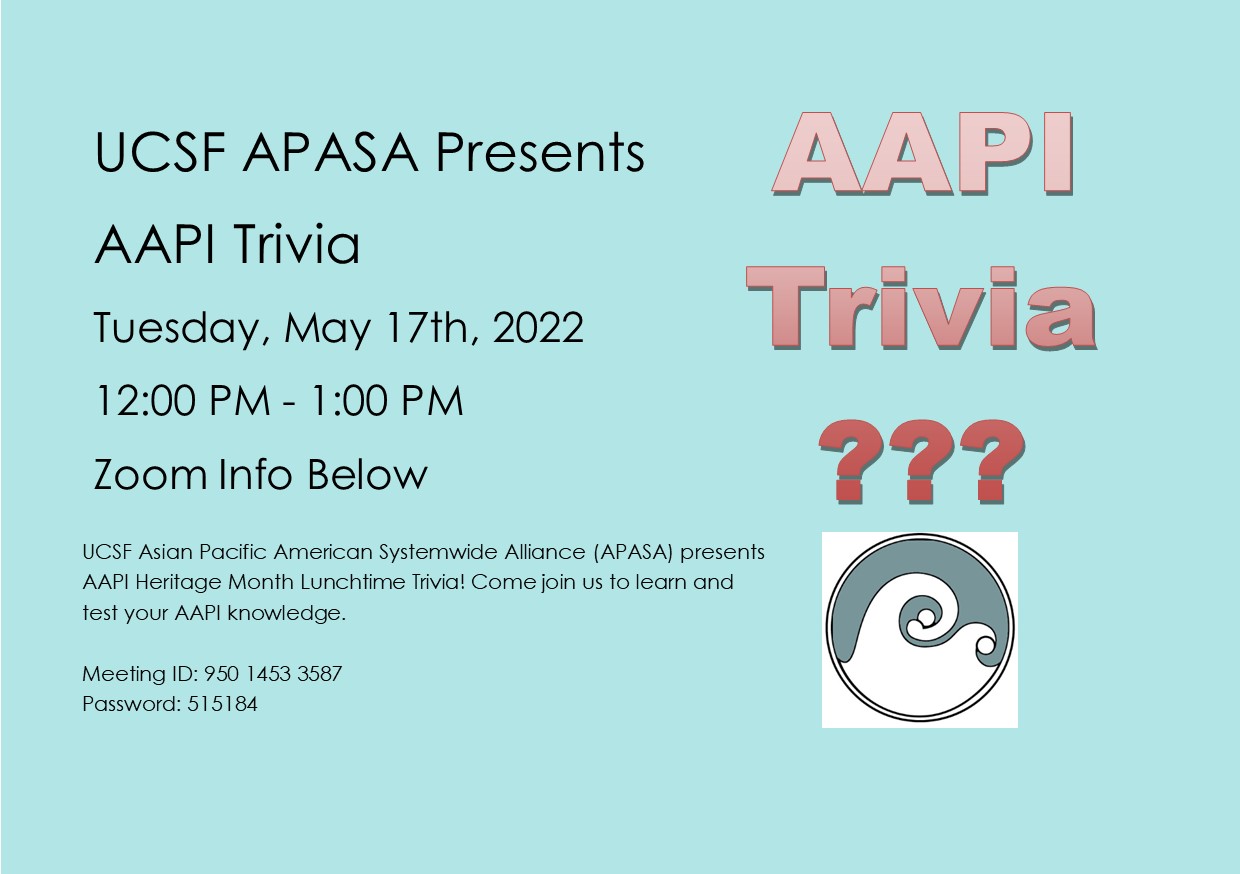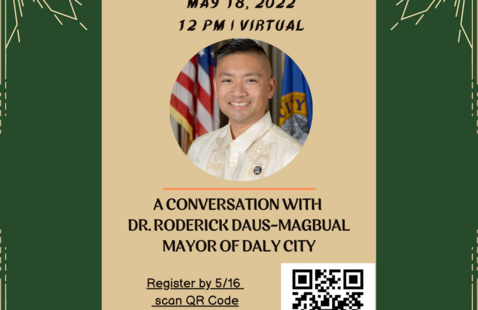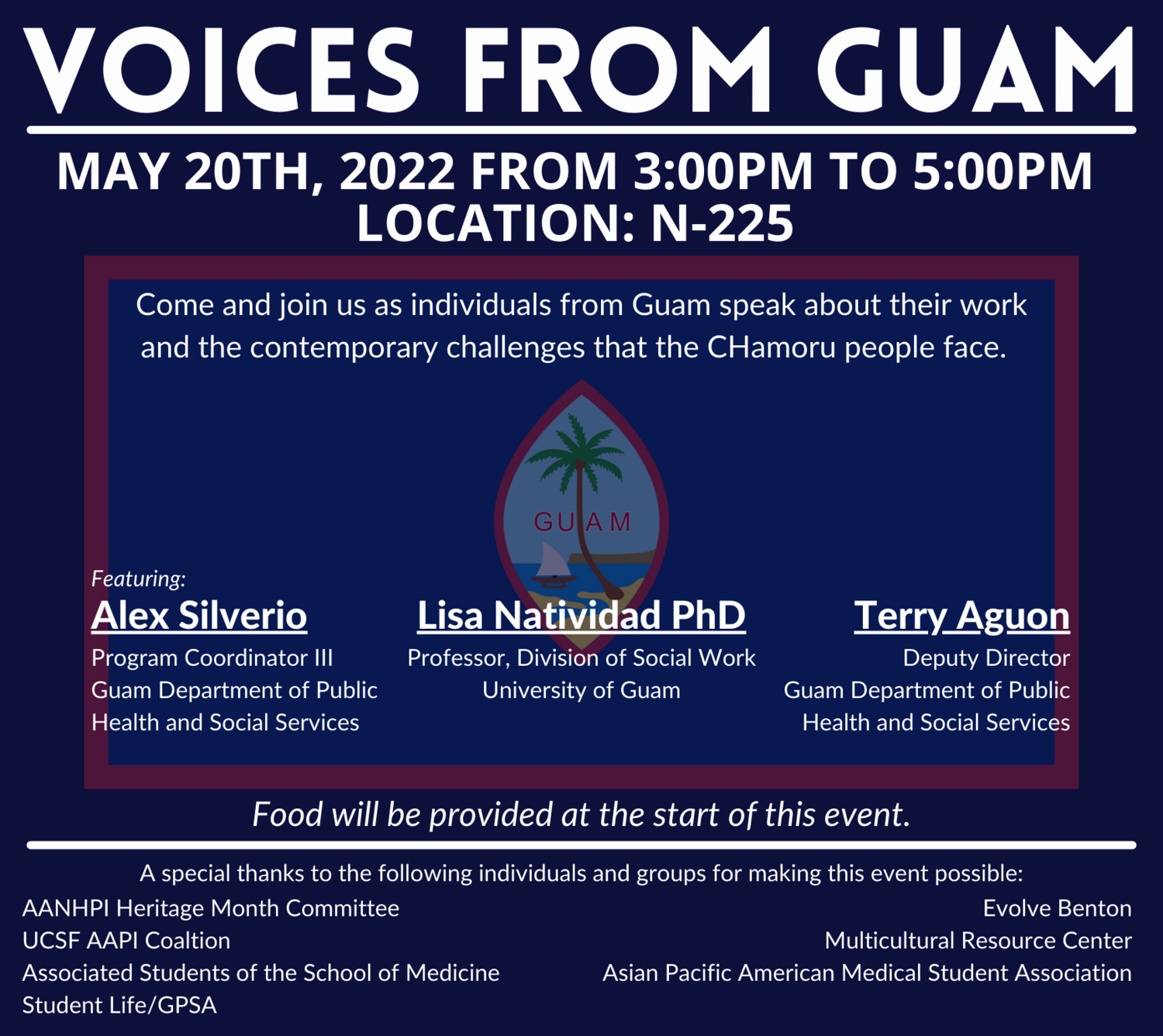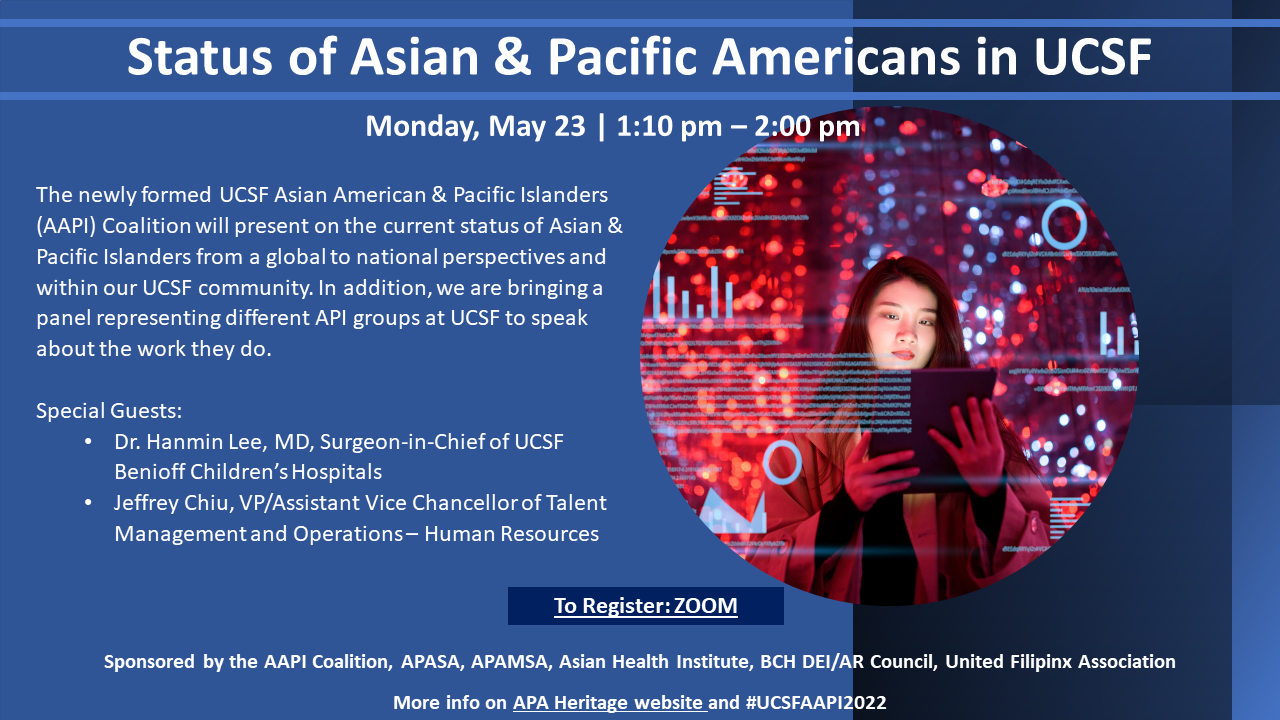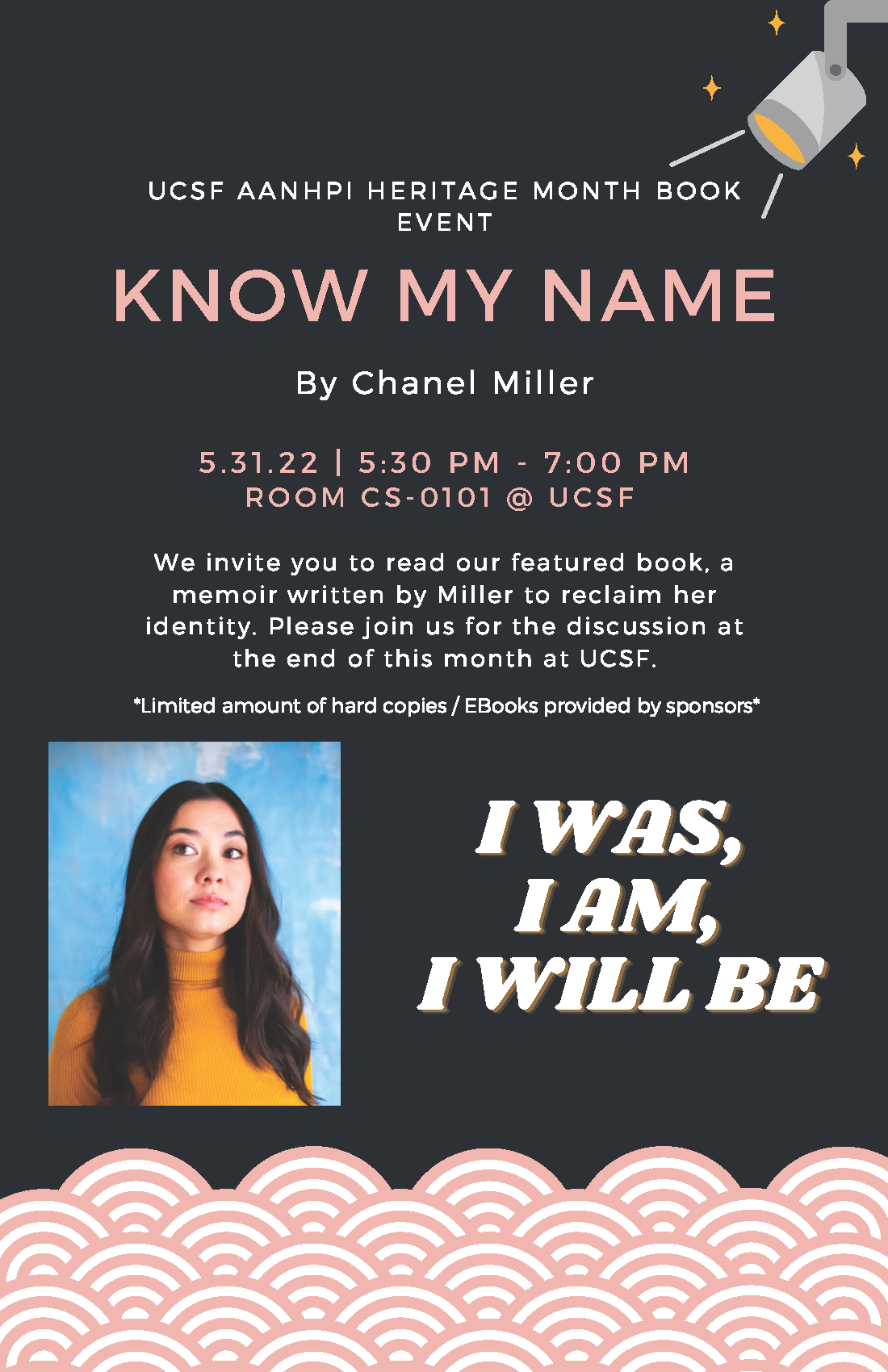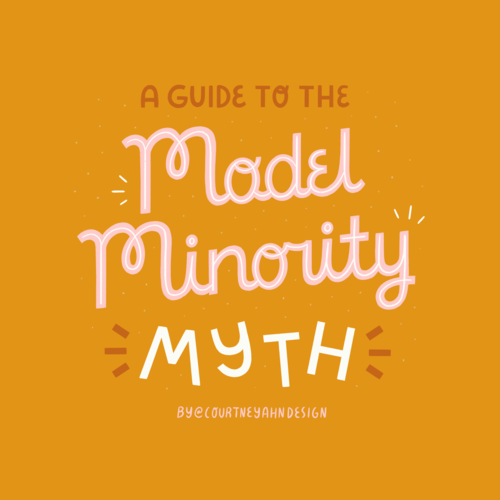May is Asian Pacific American Heritage Month, which celebrates all of the Asians, Native Hawaiians, and Pacific Islanders in the United States who have made the country what it is today. During this month, the country celebrates the achievements and remembers the struggles endured by Asian Americans, Native Hawaiians, and Pacific Islanders.
The month of May was chosen for two reasons. First, to commemorate the immigration of the first Japanese to the United States, a young fisherman named Manjiro, who arrived May 7, 1843. Second, May marks the anniversary of the completion of the transcontinental railroad on May 10, 1869. The majority of workers on the transcontinental railroad were Chinese immigrants, who laid the tracks and were responsible for most of the dangerous and heavy manual labor tasks.
Asian Pacific Heritage Month Zoom Backgrounds
Please download any of these virtual backgrounds and add them to your Zoom by following these steps:
- In the Zoom.us desktop client, go to 'Settings' as noted above and select 'Visual Background'.
- Using the (+) icon, upload your new background.
ASIANS & PACIFIC ISLANDERS in UCSF
UCSF AAPI Coalition Joint Statement
A Joint Statement to address justice and inclusion for AAPI at UCSF was developed by a new coalition of the various UCSF Asian groups, students, staff, and faculty against anti-Asian hate and exclusionary practices. The Joint Statement outlined 6 recommendations and a proposed action plan intended to make a positive impact on the learning, clinical, research and working environment for AAPI, and to further advance the DEI initiatives at UCSF. The joint statement was endorsed by over 20 campus departments/groups and more than 2000 UCSF community members including our students/learners, staff, faculty, and researchers. The Joint Statement was presented to UCSF Chancellor Sam Hawgood and his leadership team on June 24, 2021, to discuss a plan to address the 6 recommendations.
This is a historical moment for all AAPI at UCSF. The COVID-driven verbal and physical assaults since March 2020 have angered and terrorized many in the AAPI community at UCSF beyond their tolerance limits, giving a burst of strength and courage to unify us as a strong coalition that crosses all socioeconomic, educational and status divides. It is the goal of the UCSF AAPI Coalition to collaborate with our communities and allies to use the Statement and the Appendix to strategically address some long-time deficiencies and issues affecting our AAPI community. We are only at a starting point, and more action items can be developed later.
Read the full AAPI Coalition Statement here.
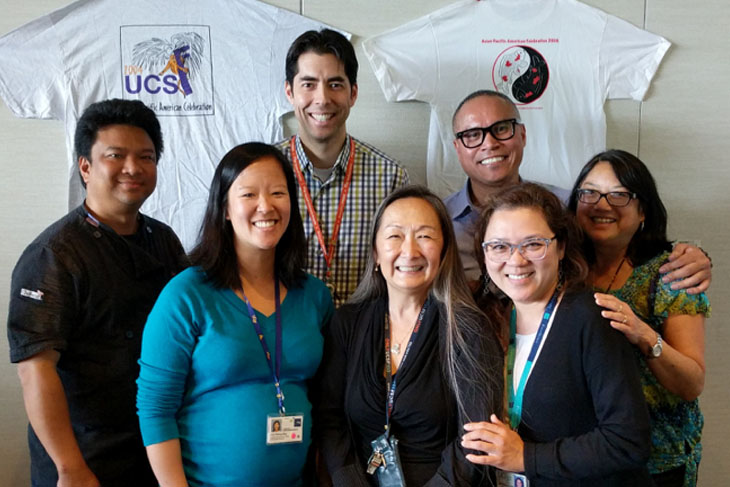
Asian Pacific American Systemwide Alliance (APASA)
To promote professional and social relations within UCSF, as well as the rich and diverse cultural heritage of all Asian communities. APASA works with other minority organizations to address issues of equality, fair labor practices and diversity at UCSF.
The UCSF Asian Heart and Vascular Center is a cardiovascular care hub for the Asian community, the fastest-growing population in San Francisco.
We respect the cultural differences that exist in the Asian community. Patients receive language-appropriate information and educational materials about heart disease and how to prevent it. The center also participates in research to better understand the metabolic and genetic differences of the Asian community.
- Association of Chinese Students & Scholars (learners)
- Asian Faculty Group (faculty)
- Asian Health Caucus (learners)
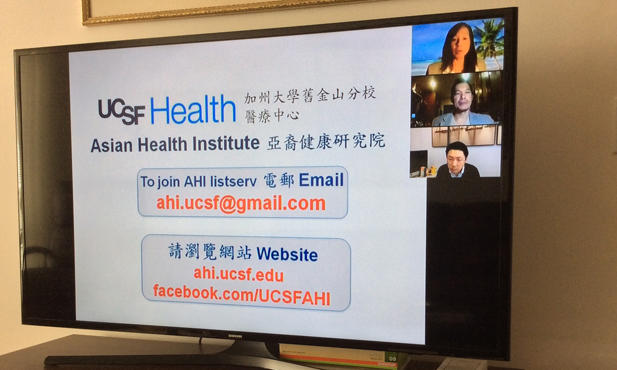
Asian Health Institute
As the large population of Asians continues to take a prominent presence within the San Francisco and Bay Areas, the University of California at San Francisco (UCSF) has established the Asian Health Institute as one of the newest departments to build the important bridge with the Asian community to achieve health parities and improve medical access.
UCSF EVENTS
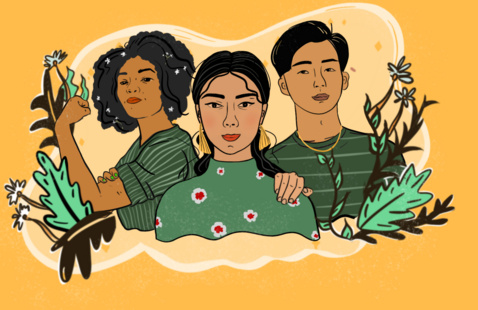
Asian American Building Anti-Racism by Dr. Kim Tran
Tuesday, May 3, 2022 | 12 pm - 1 pm
The UCSF Asian Pacific American Systemwide Aliance (APASA) is delighted to present a webinar on Asian American Building Anti-Racism by Dr. Kim Tran. Kim Tran, PhD, is an equity strategist for grassroots and transformative justice organizations including ACLU, National Center for Lesbian Rights, W.K. Kellogg Foundation. She will be covering the following topics in her webinar:
- How Asian Americans can have a brave & meaningful conversation around race
- How internalized racism manifests in families, communities, and culture
- Basic context and knowledge of how to engage and empower allies and advocates
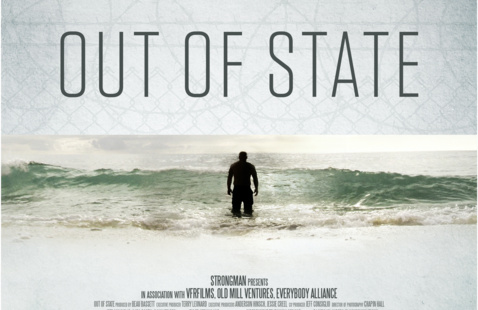
Documentary Film: Out of State
Wednesday, May 11 | 5:30 pm - 7:30 pm
Following the screening, there will be discussion with the film's Director and Producer, Ciara Lacy, moderated by Melisa Bautista, M.Ed (MRC) and Julie Saba, MD (BCMM). Those that register will be sent an email on May 6 with an early access link to the film.
A Conversation with HHS Office of Minority Health
Monday, May 16 | 12:10 pm - 1 pm
Come join a conversation with CAPT Samuel Wu and LCDR Lusi Martin-Braswell about working within the federal government as Asian and Pacific Americans.
Sponsored by the UCSF AAPI Coalition, APASA, APAMSA, Asian Health Institute, BCH DEI/AR Council, United Filipinx Association
AAPI Trivia
Tuesday, May 17 | 12 pm - 1 pm
UCSF Asian Pacific American Systemwide Alliance presents AAPI Heritage Month Lunchtime Trivia! Come join us to learn and test your AAPI knowledge.
Community Conversation: Mayor of Daly City - Dr. Roderick Daus-Magbual
Wednesday, May 18 | 12 pm - 1 pm
Join the United Filipinx Association in welcoming Dr. Roderick Daus-Magbual, Mayor of Daly City, California in a conversation about his journey of being an educator to entering politics as a Councilmember and current Mayor. This conversation is centered on storytelling and he will speak on initiatives and issues that are impacting Filipinx American community. This event is part of the Asian Pacific Islander (API) Heritage Month 2022 programming at UCSF.
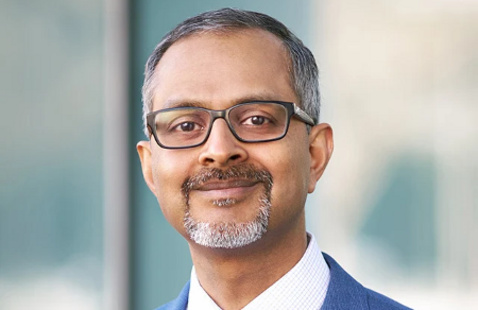
API Leadership Fireside Chat with Suresh Gunasekaran
Friday, May 20 | 12 pm - 1 pm
Suresh Gunasekaran is our new President and CEO at UCSF Health - a top API leader at UCSF. He is an accomplished executive to the world-renowned health system with 20 years of experience in health care administration and information technology with a focus on quality and safety, patient service, collaboration, and operational excellence. You can read more about him here.
The APASA Steering Committee will lead this fireside chat with questions that aim to get to know Suresh better. The topics will include his background and identity, leadership style, perspectives in DEI and Anti-Racism, etc. Attendees will also have the opportunities to ask him questions during the Q&A session. If you have any suggestions on questions, please send us an email at [email protected].
Voices from Guam
Friday, May 20 | 3 pm - 5 pm
Location: Parnassus Campus, Nursing Building, N-225
Come and join us as individuals from Guam speak about their work and the contemporary challenges that the Chamoru people face.
Guest speakers:
- Alex Silverio - Program Coordinator III, Guam Dept of Health and Social Services
- Lisa Natividad, PhD, Professor, Division of Social Work, University of Guam
- Terry Aguon, Deputy Director, Guam Dept of Health and Social Services
Status of Asian & Pacific Americans in UCSF
Monday, May 23 | 1:10 pm – 2:00 pm
The newly formed UCSF Asian American & Pacific Islanders (AAPI) Coalition will present on the current status of Asian & Pacific Islanders from a global to national perspectives and within our UCSF community. In addition, we are bringing a panel representing different API groups at UCSF to speak about the work they do.
Special Guests:
- Dr. Hanmin Lee, MD, Surgeon-in-Chief of UCSF Benioff Children’s Hospitals
- Jeffrey Chiu, VP/Assistant Vice Chancellor of Talent Management and Operations – Human Resources
Know My Name by Chanel Miller
Tuesday, May 31 | 5:30 pm - 7:00 pm
Room CS-0101 @ UCSF
We invite you to read our featured book, a memoir written by Miller to reclaim her identity, during the month of May and reconvene at the end of the month to discuss your thoughts. Please sign-up using this Google Form. Some hard copies and Ebooks have been generously sponsored by UCSF ASSM, MRC, CARE, and Parnassus Library. Please make your selections below for book pickup at the UCSF Parnassus Library. Copies are limited and we will contact you if you sign up and copies are no longer available.
Pickup times:
- Thursday May 12th 1:00-4:00p
- Friday May 13th 8:00a-12:00p
If you are capable of purchasing your own copy and would like to support local bookstores (in-person or online ordering), I have provided their information below.
- SF Locations: Green Apple Books [https://www.greenapplebooks.com]
- Berkeley Location: Eastwind Books [https://www.asiabookcenter.com]
If you have any questions/need accommodations, please email [email protected]. Thank you and hope to see you there!
ANTI-ASIAN RACISM
UCSF denounces anti-Asian racism
While attacks and harassment against people of Asian descent have long existed and have been a tragic aspect of this pandemic since its start, the recent escalation of violence is alarming. We stand in solidarity with colleagues, patients, families, volunteers, partners, and community members of Asian descent, and condemn injustice in all forms. Ways to support the AAPI communities, as well as resources to support your physical and emotional well-being, are available on the BCH DEI website.
UC anti-Asian racism website
UCOP has compiled resources and statements for the UC community in response to recent incidents of anti-Asian speech and violence taking place across the U.S. Click here for the website.
Why Asian-Americans are being attacked and what can you do about it
Read the article from UC Berkeley’s Greater Good Science Center.
Teaching resources guide on anti-Asian and intersectional racism
The guide includes resources on history of anti-Asian racism, AAPI mental health, as well as intersectional racism, BIPOC solidarity, White allyship. Click here for the teaching guide
Bystander Trainings by RightToBe (formerly Hollaback!)
Hollaback! is offering free, one-hour, interactive trainings to train people on how to safely intervene when you witness harassment — or experience it yourself. Participants will learn a clear, adaptable, and expert-approved set of tools that have been proven to reduce the prevalence of harassment: 5Ds of bystander intervention (distract, delegate, document, delay, and direct); followed by how to prioritize one’s own safety while intervening. Some trainings in May include:
MODEL MINORITY MYTH
History of 'Model Minority'
The term 'model minority' was coined in 1966 by sociologist William Petersen in an article he wrote for the The New York Times Magazine entitled "Successful story: Japanese American style." The term has often been used to describe Asian Americans, a group seen as having success relative to other immigrant groups. Asians work hard, do well in school, and go on to have successful careers.
What's so bad about the Model Minority Myth?
- Like all stereotypes, the model minority myth erases the differences among individuals
- The model minority myth ignores the diversity of Asian American cultures
- The model minority myth operates alongside the myth of Asian Americans as perpetual foreigners
- The model minority myth erases racism against Asian Americans
- The model minority myth is harmful to the struggle for racial justice
ARTICLES
- The model minority myth says all Asians are successful. Why that's dangerous. - NBC News, March 20, 2021
- Debunking the model minority myth: A USC PAM & APASS Online Exhibition
- Asian Americans are still caught in the trap of the 'Model Minority' stereotype. And it creates inequality for all. - Time, June 26, 2020
- 'Model Minority' myth again used as a racial wedge between Asians and Blacks - NPR, April 19, 2017
- The Model Minority Myth: Highlighting key stories about the profession you may have missed - Center on the Legal Profession, Harvard Law School, November/December 2018
- From the Yellow Peril to the Model Minority: A History of Asian American Immigration - University of San Diego
ASIAN & PACIFIC ISLANDER HEALTH DISPARITIES
- 2020 Statistical Portrait of Asian Americans, Native Hawaiians and Other Pacific Islanders - UCLA Asian American Studies Center
- Asian American and Pacific Islander Heritage Month May 2020 - Census
- Asian Americans, Native Hawaiians and Pacific Islanders Behavioral Health Equity - SAMHSA
- AAPI community data needed to assess better health outcomes – American Medical Association Center for Health Equity Report
- State of Asian Americans and Pacific Islanders - AAPI Data 2015
- State of Asian Americans and Pacific Islander Series - Center for American Progress
Asian Americans
- Asian population 2010 - Census
- Asian American Profile - HHS Office of Minority Health
- Asian Health Disparities - CDC
- Health of Non-Hispanic Asian Adults: United States, 2010-2014 - CDC
- State of Asian Americans and Pacific Islander Series - Center for American Progress
- Problems with collection and interpretation of Asian American health data
Native Hawaiians and Pacific Islanders
- Native Hawaiians and Pacific Islander Profile - HHS Office of Minority Health
- Native Hawaiians and Pacific Islanders Health Disparities - CDC
- Native Hawaiians and Pacific Islanders Health Disparities - APIAHF, 2010
- Health conditions and behaviors of Native Hawaiian and Pacific Islanders person in the United States, 2014 - CDC, July 2017
- Center for Native and Pacific Health Disparities Research
- Challenges and Promise of Health Equity for Native Hawaiians - National Academy of Medicine
- NHPIs in CA 2014 Report - Advancing Justice, Los Angeles
HISTORY OF ASIANS & PACIFIC ISLANDERS in the U.S.
- A brief history of the Anti-Chinese Rhetoric in California
- A history of exclusion, of erasure of invisibility. Why the Asian-American story is missing from many U.S. classrooms
- America’s long history of scapegoating its Asian citizens
- Americans overthrow Hawaiian monarchy
- Asian American Milestones: timeline
- Asian Americans Then and Now | Asia Society
- Everything you need to know about the territories of the United States
- History of Anti-Asian American violence
- History of San Francisco’s Chinatown - HISTORY
- The 1871 Chinese Massacre – The worst lynching in US history
- The KQED Asian Education Initiative
- Timeline of Chinese immigration to the US
VIDEOS
